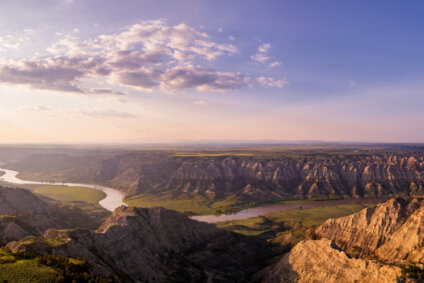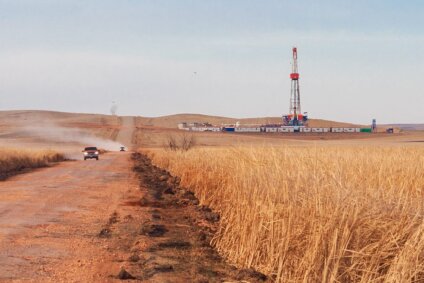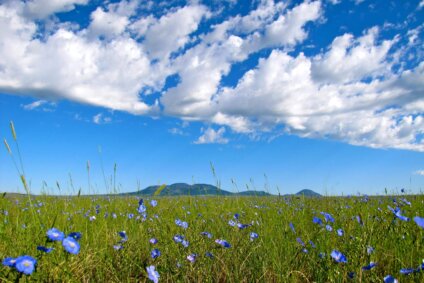Our success reforming the oil & gas leasing system
In 2022, after years of hard work by a broad coalition of grassroots advocates, including Wild Montana, Congress passed the Inflation Reduction Act. This landmark law represents our nation’s largest investment to fight climate change and mitigate its impacts.an
The bill included a number of provisions that have helped reform the broken federal oil and gas leasing system, something Wild Montana has been a leading national advocate for in the last several years. In general, the provisions make it much more difficult for companies to stockpile oil and gas leases on public lands. They also allow the Bureau of Land Management to spend more time and resources on conserving our public lands and less on processing and administering oil and gas leases.
In particular, the IRA:
- Ended the wasteful practice of noncompetitive leasing, which allowed companies to pay a woeful $1.50 an acre for oil and gas leases.
- Increased the minimum bid for competitive sales from $2 an acre to $10 an acre.
- Increased the royalty rate for oil and gas produced on federal public lands from 12.5% to 16.67%, an amount equal to many state royalty rates, including Montana’s.
- Created an “expression of interest fee” of $5 per acre, compelling companies to choose nominated parcels wisely, rather than nominating as many parcels as possible to flood the auction with an excess supply, thereby driving down prices.
- Imposed a royalty on methane, encouraging industry to stop wasting, venting, or flaring this particularly potent greenhouse gas.
Our work now focuses on pressuring the Interior Department to conduct the rulemaking that will ensure these leasing provisions in the IRA are implemented.
Minimizing oil and gas leasing
Under the IRA, the only way the BLM can grant permits for solar and wind projects on public lands is to continue issuing new leases for oil and gas for at least the next ten years, something that will continue adding carbon dioxide, methane, and other volatile gasses to our atmosphere and fragmenting ecosystems with a maze of well pads, maintenance roads, and pipelines.
Wild Montana is working to ensure the BLM leases the fewest acres possible for new oil and gas drilling while protecting critical wildlife habitat and corridors and safeguarding special cultural and recreational sites from further degradation or fragmentation.
Cleaning up old and abandoned oil wells
Hundreds of thousands – if not millions – of old, derelict oil wells across the country pollute our land, air, and water. That’s because of insufficient bonding requirements, which have allowed lease-holding companies to simply walk away from sites without properly plugging wells once they’ve extracted all they can. Unplugged wells leak tremendous amounts of methane and carbon dioxide into the atmosphere, further contributing to climate change. The amount of money companies must put up for a bond when they receive a lease is still what it was when bonding was first established in the 1950s, even though the actual cost to plug a well has ballooned as drilling technology has become more advanced.
When companies don’t clean up after themselves, the American people get left with the bill for the BLM and state regulators to clean up the industry’s mess.
It’s far past time for bonding reform, and we’ll continue to demand legislative and administrative action for program-wide reform to ensure private companies are held responsible for cleaning up after themselves. We will also continue to advocate for the cleanup of existing orphan wells, ensuring state and federal agencies wisely deploy the millions of dollars Congress allocated for this purpose in 2021.




